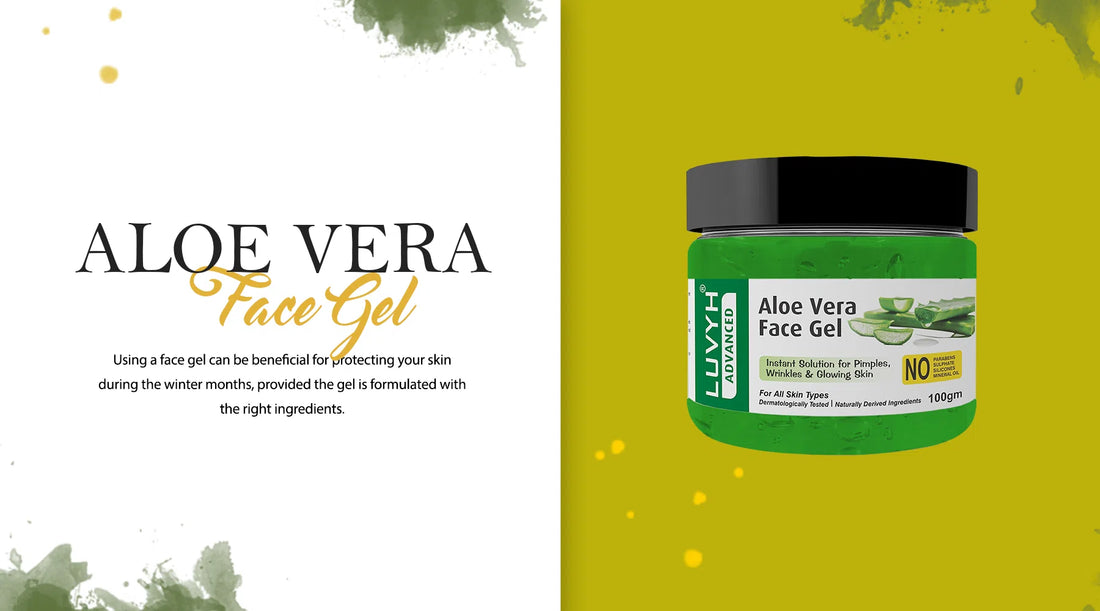Using a face gel can be beneficial for protecting your skin during the winter months, provided the gel is formulated with the right ingredients. Here's how a face gel can help safeguard your skin during colder weather:
-
Hydration: Face gels are often water-based and lightweight, making them an excellent choice for providing hydration without a heavy or greasy feeling. They can replenish your skin's moisture levels and combat the drying effects of cold air and indoor heating.
-
Barrier Protection: Some face gels contain ingredients that help reinforce the skin's natural barrier. This barrier helps prevent moisture loss and protects your skin from external aggressors like wind and cold air, which can strip away natural oils.
-
Soothing and Calming: Winter weather can cause redness, irritation, and sensitivity. Face gels can contain soothing ingredients like aloe vera, chamomile, or cucumber extract that help calm and alleviate these issues.
-
Locking in Moisture: Gels with humectant ingredients such as hyaluronic acid and glycerin can attract and retain moisture on your skin's surface, helping to keep it soft and supple even in dry conditions.
-
Non-Comedogenic: Many gels are non-comedogenic, meaning they won't clog your pores. This is especially important if you're prone to breakouts or congestion, as heavy creams can exacerbate these issues.
-
Quick Absorption: Gels tend to absorb quickly into the skin, which can be convenient in cold weather when you might not want to spend too much time applying skincare.
-
Layering Compatibility: Gels work well in layering with other skincare products. You can easily apply serums, oils, or sunscreen over a gel without the concern of piling or heaviness.
Remember that individual preferences and skin types vary, so it's important to choose a face gel that suits your specific needs. Look for gels with ingredients like hyaluronic acid, ceramides, antioxidants (like vitamin C and E), and natural extracts that provide protection and hydration.
Before incorporating any new product into your skincare routine, it's a good idea to do a patch test to ensure you don't have any adverse reactions. If you're uncertain about which products to use, consider consulting a dermatologist or skincare professional for personalized advice.

